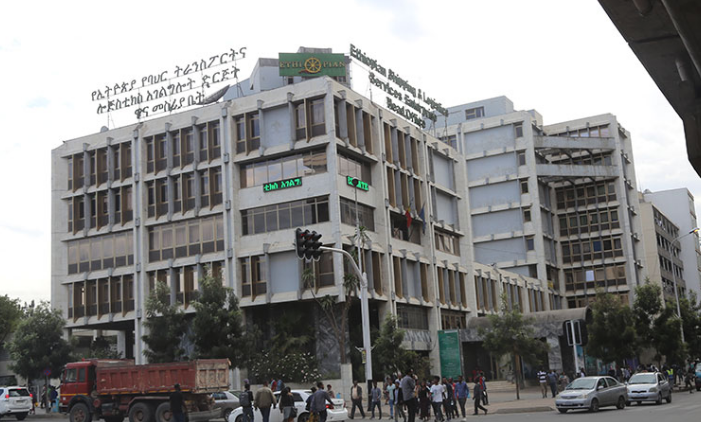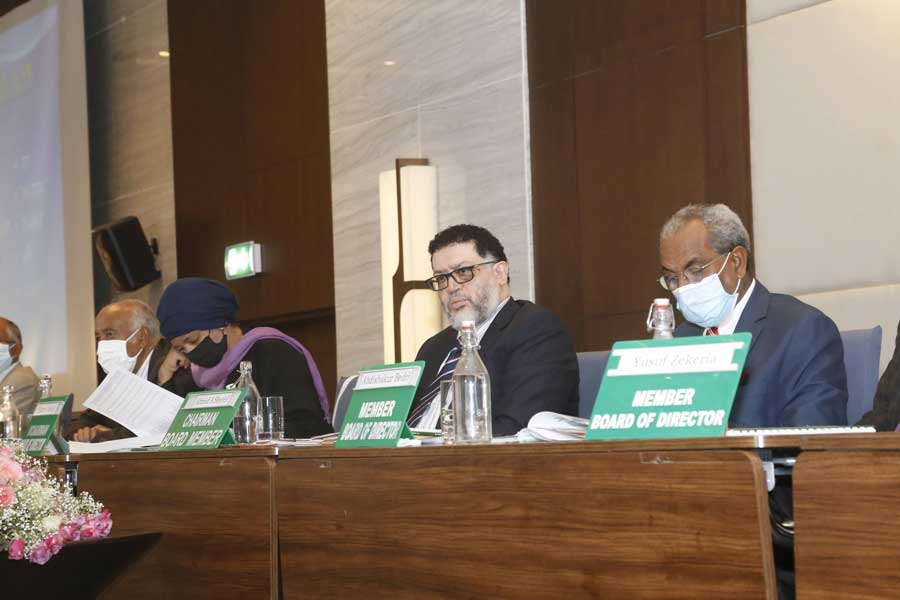
Commentaries | Aug 25,2024
Importers can sigh relief as Roba Megersa, chief executive officer (CEO) of the state-owned Ethiopian Shipping & Logistics Services Enterprise (ESLSE), slashes shipping costs by more than half.
Roba's latest move applies to shipments from 18 ports in Asia, such as freight from the Bangladeshi Chittagong Port. It will see the highest tariff cuts at 58pc, while shipments from ports in China are over a third less expensive.
Roba attributed the tariff cuts to a global slowdown in demand, forcing major shipping lines to revise the fees they charge, lowering them by as much as 40pc. This will have a profound impact on the company's revenues. Transporting 7.2 million tonnes of inbound and outbound cargoes, the Enterprise declared a gross profit of 5.6 billion Br last year, comprising 11pc of its revenues.
With a fleet of 11 vessels, the Enterprise remains the sole provider of multimodal transport services. It works with shipping companies, such as Maersk Line, Mediterranean Shipping Company (MSC), and Evergreen Marine, to transport goods. According to S&P Global Market Intelligence, a US-based financial information and analytics company, sluggish global trade and shrinking demand for goods are pushing freight rates down.
The easing supply chain disruptions built up over the pandemic also contributed to the declining costs. Further reductions are expected as Russia's war in Ukraine threatens to risk global recession. The World Bank warned last week that the world is entering a recession due to central banks in major economies increasing interest rates simultaneously.
Says David Malpass, the World Bank president: "Global growth is slowing sharply, with further slowing likely as more countries fall into recession."
Malpass frets that if these trends persist, they will have "devastating consequences for emerging market and developing economies."
However, Roba's decision to slash tariffs in response to the global economic slowdown is welcome news to importers who faced drastic increases in transportation costs and delays in deliveries in the past two years. A global logistics crisis precipitated by the COVID-19 pandemic led to a surge in shipping costs, which pushed commodities prices up across the globe.
The disarray pushed the Enterprise executives to jack tariffs up by as much as 400pc, raising shipping costs for 20ft and 40ft containers to close to 5,000 dollars and 10,000 dollars, respectively. Importers had to absorb the increased costs and transfer them to consumers. The high prices were accompanied by shipping container shortages brought on by a slump in production by manufacturers in China, which account for over 90pc of the market share.
Outcries from importers who reported their goods were stranded, particularly in Chinese ports, forced Roba and his deputies to make two rounds of procurements last year. The Enterprise spent close to 36 million dollars to acquire 6,000 shipping containers, bringing its total stock to around 10,000.
Tilahun Chala, an importer of tyres and stationery items, is among the businesspeople disadvantaged by the containers crisis.
Before the pandemic, he would have paid around 110,000 Br to use a 40ft container from a port in China, the primary source of Ethiopia's goods imports. However, he has had to pay three times as much in recent years for each container. The upsurge in shipping costs pushed him to raise his prices to compensate.
Less than a year ago, Tilahun sold tyres designed for large trucks for 15,000 Br a piece. The same tyres went for 50,000 Br last week.
Industry observers blame mounting shipping costs for the unrelenting inflation, apart from the forex crunch and the Birr's loss of ground against major global currencies.
"The latest move can ease the cost of living," said Fitsum Tilahun, an expert in logistics.
It has been nearly a year since the inflation index was recorded below the 30pc mark. Headline inflation remained above 33pc.
Mesfin Endezinaw, CEO of Mekamba Plc, a company importing agrochemicals, is pleased with the news of shipping tariffs dropping. Over the past two years, he has seen prices for the company's chemicals double to 4,000 Br a litre.
"The shipping cost profoundly affected our prices," Mesfin told Fortune.
Incorporated in 2002, Mekamba struggled to ship products from China and Germany over the past year. The company used to import large volumes of commercial pesticides, herbicides and fungicides. Logistics disruptions have dragged the volume down by 80pc recently, disclosed Mesfin.
Through CropLife Ethiopia Agrochemical Association, Mekamba Plc recently requested an extension of a waiver to prolong its letter of credit (LC). Established in 1998 by six pesticide importers, the Association comprises seven multinational manufacturer representatives and 22 importers.
Three months ago, the lobby group pleaded with central bank regulators for an extension of waivers on commission fees paid to prolong LCs and cash against documents (CAD) agreements for the third time in a year. Commercial banks had agreed to extend the waivers following instructions from the central bank.
Roba foresees further tariff adjustments in the future.
"It'll all depend on the global trade dynamics," he told Fortune.
PUBLISHED ON
[ VOL
, NO
]

Viewpoints | Feb 06,2021

Fortune News | Jun 08,2019

Fortune News | Mar 13,2021

Fortune News | Jan 09,2021

Fortune News | Jun 08,2025

Dec 22 , 2024 . By TIZITA SHEWAFERAW
Charged with transforming colossal state-owned enterprises into modern and competitiv...

Aug 18 , 2024 . By AKSAH ITALO
Although predictable Yonas Zerihun's job in the ride-hailing service is not immune to...

Jul 28 , 2024 . By TIZITA SHEWAFERAW
Unhabitual, perhaps too many, Samuel Gebreyohannes, 38, used to occasionally enjoy a couple of beers at breakfast. However, he recently swit...

Jul 13 , 2024 . By AKSAH ITALO
Investors who rely on tractors, trucks, and field vehicles for commuting, transporting commodities, and f...

Nov 1 , 2025
The National Bank of Ethiopia (NBE) issued a statement two weeks ago that appeared to...

Oct 25 , 2025
The regulatory machinery is on overdrive. In only two years, no fewer than 35 new pro...

Oct 18 , 2025
The political establishment, notably the ruling party and its top brass, has become p...

Oct 11 , 2025
Ladislas Farago, a roving Associated Press (AP) correspondent, arrived in Ethiopia in...